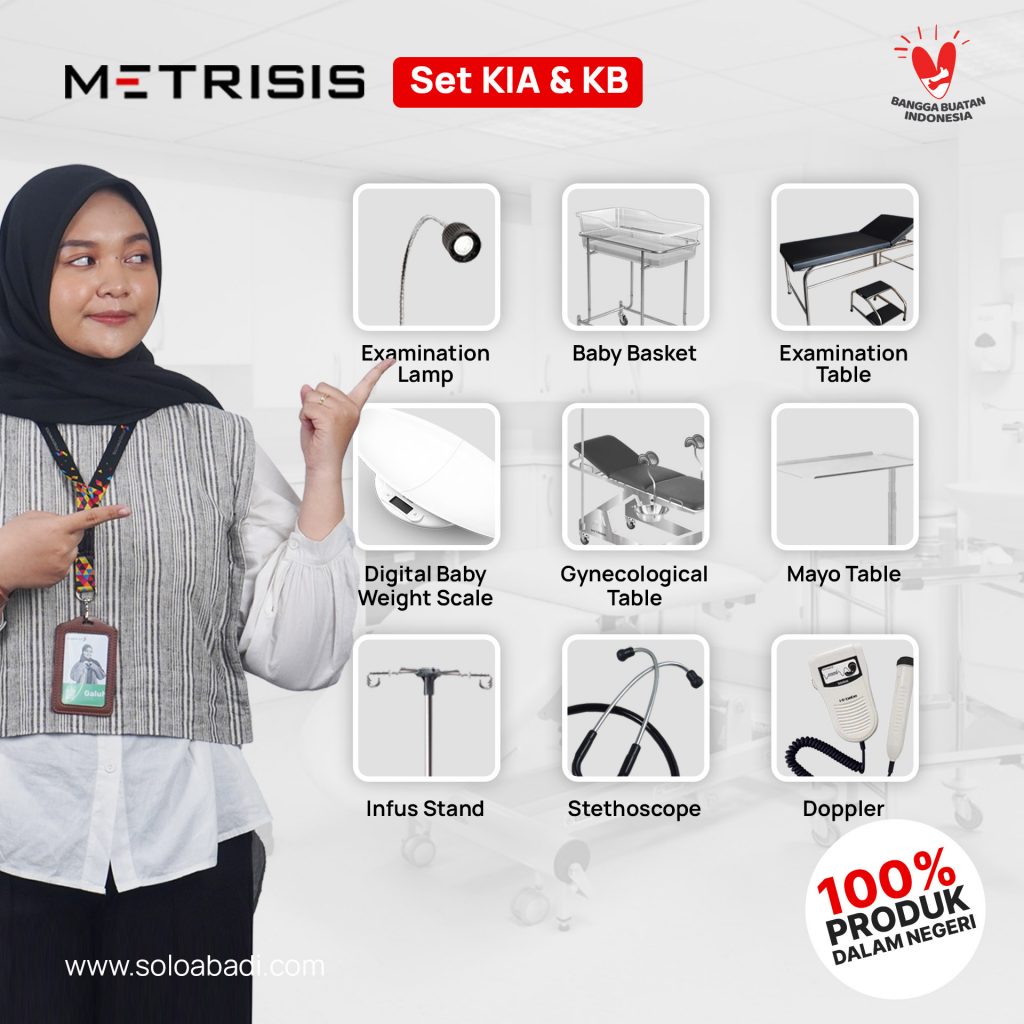Pregnancy examination or antenatal care is an examination service aimed at pregnant women to ensure that the mother and fetus are in good health during pregnancy. It is important to carry out examinations to reduce the Maternal Mortality Rate (MMR) and Infant Mortality Rate (IMR).
Antenatal Care (ANC) is an examination that aims to monitor the physical and mental health condition of pregnant women, facing the birth period, postpartum period, exclusive breastfeeding, as well as the natural and gradual return to reproductive health.
Purpose of Pregnancy Examination
The aims of carrying out routine pregnancy checks include the following:
- Detect any complications or pregnancy problems early, including a history of illness in the pregnant woman
- Prepare for the birthing process to minimize trauma to the mother and give birth to the baby safely
- Prevent the risk of complications or death during the birth process
- Preparing mothers to provide exclusive breastfeeding for babies
- Preparing the role of the mother and family to accept the presence of the child and ensure normal growth and development.
This is the importance of having regular pregnancy checks by a doctor, midwife or medical personnel. This examination has its own standards in Indonesia, you can see below!
Standard Antenatal Care Services in Indonesia
Antenatal care is very important for pregnant women. Because of this, Indonesia has set special standards regarding Antenatal Care examinations known as “10T”. The following is an explanation of each:
1. Body Weight Scale
Measuring body weight aims to detect possible disturbances in fetal growth. Pregnant women are also required to measure their height to find out possible factors that could complicate childbirth. Height checks are carried out to prevent the risk of Cephalopelvic Disproportion (CPD) which will be higher if the mother’s body is less than 145 cm. CPD is a complication that occurs because the baby’s head or body is too large to pass through the mother’s pelvis.
2. Blood Pressure
Measuring blood pressure aims to detect how big the risk of developing preeclampsia is, which has the potential to endanger pregnancy. Normal blood pressure in pregnant women is 90-120/60-80 mmHg. It can be said to be eclampsia if a pregnant woman’s blood pressure is more than 140/90 mmHg. High blood pressure can cause pregnancy and childbirth, and can even cause maternal death.
3. Tentukan Nilai Status Gizi dengan Pengukuran Lingkungan Lengan Atas
Upper arm circumference is only measured once in the first trimester to determine the nutritional status of pregnant women. If the upper arm circumference (LILA) is less than 23.5 cm, then there is a possibility that the mother will experience Chronic Energy Deficiency (CED) which can increase the risk of a baby being born with a low birth weight (LBW).
4. Height of the uterine fundus (top of the uterus)
This examination is carried out to see or estimate the baby’s development while in the womb. Fundal height is the distance from the top of the pelvic bone to the top of the pregnant woman’s abdomen. Normal fundal height is 2 cm greater than gestational age.
5. Determine Presentation and Heart Rate
This examination is important to do when the time is approaching delivery, in order to determine whether the fetal head has entered the pelvis or not, generally it can be done at least at the end of the second semester.
6. Tetanus Immunization Status Screening
The aim is to determine the immunization status of pregnant women, as well as provide tetanus vaccination if it has not been done, to build the immunity of pregnant women against titanus infection.
7. Giving Iron Tablets
Giving iron tablets is used to prevent pregnant women from experiencing iron deficiency anemia. During pregnancy, mothers are advised to consume a minimum of 90 iron tablets.
8. Laboratory Tests
Pregnant women need to do a complete blood test and a series of laboratory tests: blood type, rhesus, protein in urine, blood sugar levels, hemoglobin, syphilis and HIV.
9. Special Procedures
If problems or abnormalities are found during pregnancy, the doctor or midwife can immediately carry out appropriate and early treatment if they find certain conditions in the pregnant woman.
10. Counseling
Every time you have a pregnancy check-up, the mother can provide counseling with a doctor or midwife regarding the health condition of the baby in the womb or other things that can support health during pregnancy.
Pregnancy Checkup Schedule
In general, pregnant women need to visit a doctor for pregnancy checks at least 6 times over 9 months. The details are as follows:
- 2 times at 1-12 weeks of gestation
- At least once at 13-28 weeks of gestation
- 3 times at 29-40 weeks of gestation
Apart from that, there are several conditions that require pregnant women to have more frequent checks, namely:
- Having a pregnancy at the age of 35 years or older
- Risk of giving birth prematurely
- experiencing pregnancy complications or high-risk pregnancies, for example eclampsia
- have a history of diseases, such as asthma, lupus, anemia, diabetes, high blood pressure or obesity.
Now, you understand the importance of prenatal check-ups for pregnant women, right? As a prospective mother, it is important for you to carry out this examination to ensure that you and your fetus are always in good health.
Handling services to carry out standard inspections require instruments whose quality is guaranteed at the best prices from Solo Abadi by filling in the available ask for price. You can also buy directly via the e-catalog in the health equipment window. You can also connect directly via WhatsApp.










